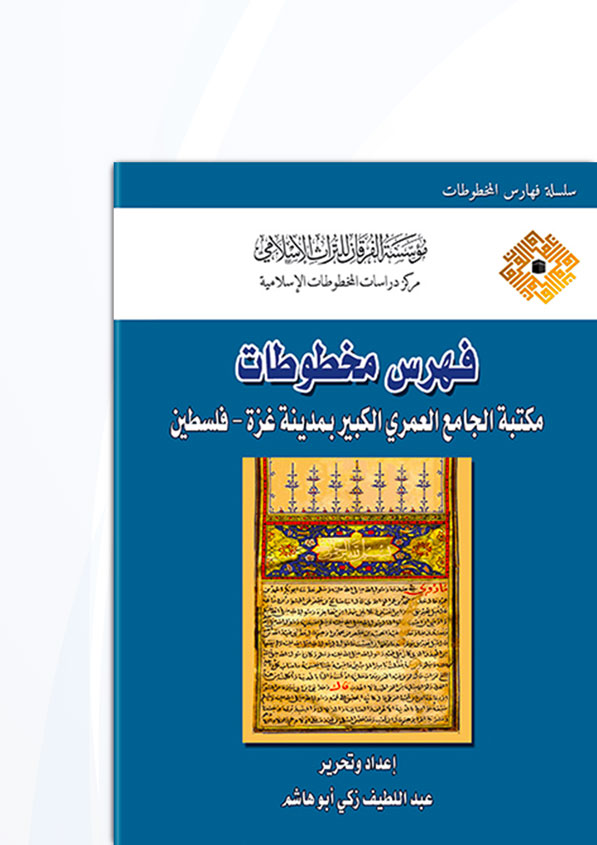Summary
This catalogue documents 187 original manuscripts, ranging from large codices to opuscula, and partial collections. Their subject matter spans the wide spectrum of Islamic sciences and the humanities. Yet, the majority relate to jurisprudence (fiqh) and Prophetic tradition (Ḥadīth) and associated disciplines.
The catalogue describes important and rare manuscripts, including valuable literary works, such as the poetry collection (Dīwān) of the eminent poet, Ibn Zaqāʿah al-Gazzī, and fatwas of the erudite scholar, al-Tamrtāshī al-Gazzī, and also Shaykh al-Islām Ḥasan bin ʿAbd al-Laṭīf al-Ḥusaynī. A key distinction of this library’s manuscript collections are holographs by Gazan scholars. These include Shaykh ʿUthmān bin Muṣṭafā al-Ṭabbāʿ, Shaykh Muḥammad Sakīk al-Gazzī, Shaykh Muḥyī al-Dīn al-Malāḥ, and other natives of Gaza City in southern Palestine.
The manuscripts had been endowed as waqf by Palestinian scholars, Gazans especially, for centuries. The most important collection is that of Shaykh Abū al-Mawāhib ʿAlī al-Dajānī, former Grand Mufti of Jaffa (Yāfā).
This catalogue’s importance lies in evidencing that the Arabic Islamic heritage is indigenous to occupied Palestine. It presents documentary proof of the enduring nature of this heritage in that land. It also documents a precious Islamic manuscript collection in Gaza City, with roots in the early Islamic centuries. This is the library collection of al-ʿUmarī Grand Mosque; a centre of knowledge and culture over many centuries, up to the late 20th Century, which seeks to regain its rightful scientific, cultural, and world heritage position.



Jasondag –
gamego.sa.com